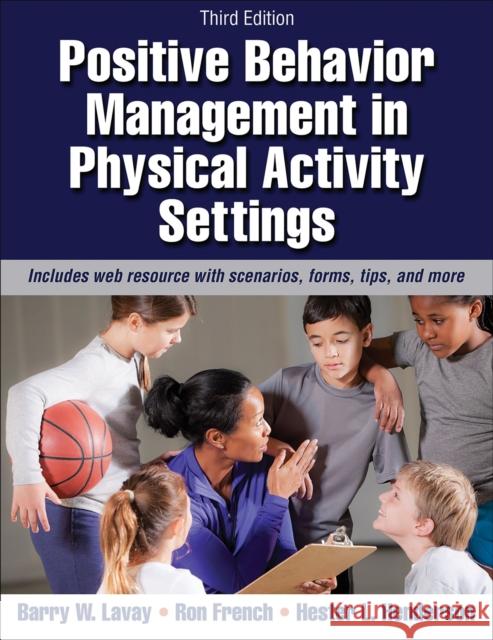Positive Behavior Management in Physical Activity Settings » książka
Positive Behavior Management in Physical Activity Settings
ISBN-13: 9781450465793 / Angielski / Miękka / 2015 / 296 str.
It's never been more challenging to manage behavior and motivate students in a physical activity setting. There are more at-risk children and students with disabilities to manage. Physical activity professionals also face the unique challenge of providing instruction to large groups with limited resources and distractions galore. If not handled correctly, these challenges can quickly add up to chaos, ineffective instruction, and frustrated, burnt-out physical activity professionals. That's where the third edition of Positive Behavior Management in Physical Activity Settings, Third Edition comes in. This resource will help you not only overcome those and other discipline challenges, but also use tried-and-true, positive techniques to develop appropriate and responsible behaviors and good character among all learners. This new edition incorporates principles, methods, and instructional practices from psychology, special education, pedagogy, recreation, athletics, and coaching. It shows teachers, coaches, and recreation leaders how to apply the principles that have proven effective in schools, youth sport programs, and recreation sites. Positive Behavior Management in Physical Activity Settings offers this new material: - A new chapter on bullying, providing up-to-date information to help you recognize and manage such behavior within your group - A new chapter on children with special needs, including autism spectrum disorder, attention deficit disorder, learning disabilities, intellectual disabilities, traumatic brain injury, and behavioral/emotional disabilities - A new chapter on behavior management ethics and professionalism, to help those who are preparing to be physical activity professionals at the pre-service and in-service levels - New sections on motivating children who are overweight or obese, using the latest research to help you to encourage them to participate Also new to this edition are an instructor guide and a web resource. The instructor guide offers different sample syllabi, showing various ways to teach the course; sample assignments; answers to chapter review questions; suggested further readings; and useful websites and apps. The web resource supplies behavior management scenarios, sample forms (checklists, rubrics, certificates, worksheets) from the chapters, instructions for designing an Applied Behavior Analysis graph and a trifold display, useful websites and apps, and a glossary by chapter. This text provides you with evidence-based strategies in managing special needs populations, including designing a positive behavioral support (PBS) model and a behavioral intervention plan (BIP), as well as information on response to intervention (RTI). The authors have added a fourth section to this new edition. Part I details the challenges that professionals face in developing a positive learning environment, and shows readers how to be proactive in doing so. Part II outlines the interventions that physical activity professionals have successfully used in a variety of settings. This part includes chapters that discuss behavioral, humanistic, and biophysical approaches. The final chapter in this section addresses how to evaluate the behavior intervention. Part III explores behavior management with various populations, and offers the new chapters on bullying and on special needs children. In part IV, the authors discuss ethical and professional behavior of physical activity professionals relative to the application of behavior management techniques used with children and youth with a focus on professionalism. The final chapter will synthesize the information presented in this text and assist the reader to take the appropriate steps needed to develop a working, teaching, and behavior management portfolio. GUIDANCE TO MOTIVATE CHILDREN Positive Behavior Management in Physical Activity offers current and future K-12 physical educators, coaches, recreation specialists, and adapted physical education specialists guidance in motivating young people. You will learn how to manage behavior and create a physical activity environment that is conducive to performance and learning--and that is designed to empower children rather than control their behavior.











